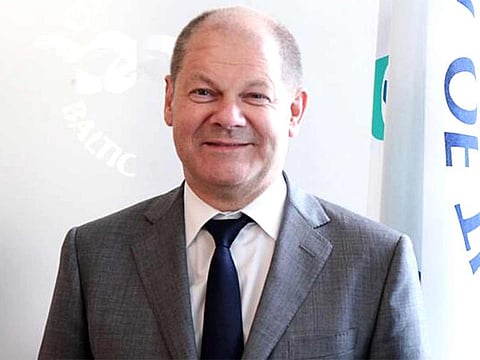Taking the reins in Germany
Chancellor Olaf Scholz will offer continuity and stability to Europe

After more than 16 years leading Germany, Angela Merkel is now embarking on retirement, and we must all become accustomed now to referring to Chancellor Olaf Scholz instead. The leader of the Social Democrats was formally elected to the highest political office in Germany by the Bundestag on Wednesday, paving the way for a three-party coalition government that ends the Merkel chapter in the European Union’s largest and most prosperous nation.
This changing of the guard in Germany, however, will be marked by a relatively smooth transition. The 63-year-old had previously served as the Finance Minister in the outgoing Merkel government and was easily elected Chancellor with almost 400 votes in the 700-seat Bundestag.
Chancellor Scholz will, however, have little time to bask in his elevation, with Germany facing a fourth wave of coronavirus, its public hospitals are under pressure and German authorities are struggling to ensure that as many people as possible take up offers of vaccination. Indeed, the nation is facing a period of introspection as it tries to balance the public health needs of vaccination against the personal freedoms of Germans who refuse to get a jab.
To the nation, Scholz is well-known for his no-nonsense approach and straight-talking — qualities that will stand him in good stead at the head of a coalition determined to move Germany towards carbon neutrality, phasing out coal generation and ensuring that Europe’s strongest economy can fully function on greener energy sources.
His predecessor was a steadying presence on the global stage and Scholz comes to office at a time when the EU is concerned over Kremlin policies and protecting the interests of Ukraine, and dealing with the tensions immediately to the east of Poland.
Whereas Merkel’s leadership in EU matters was a given, Scholz joins a European Council divided on how to deal with refugees, concerned over an erosion of EU values in Poland and Hungary, and 26 other states emerging from the economic hibernation brought about by coronavirus.
Domestically, the new coalition government has said that it is determined to ease the burden of taxes paid by ordinary Germans, and it is also intent on easing some of the regulatory and tax burdens placed on small businesses.
The Scholz government also plans to shake up social conventions, relaxing laws on some soft drugs and lowering the voting age from 18 to 16 in the coming months. The substance of his policies, however, will mostly continue the stability synonymous with Merkel.



